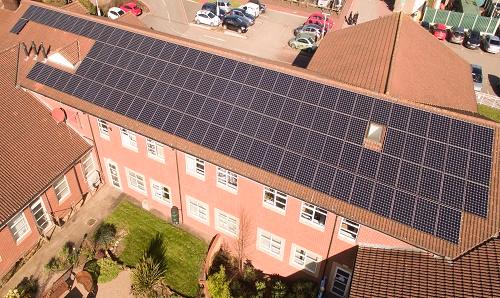
The long-term future for community energy in the UK
18 June 2021
A new paper has been published in Energy Research and Social Science by researchers at Tyndall Manchester, along with colleagues from the University of Strathclyde and Imperial College London

The paper is based on a series of research workshops held across the UK in 2018-19. Participants, including many community energy practitioners, were invited to debate what a positive long term vision for the future of community energy would look like and how it might be realised.
Together with workshop participants, the authors have produced a vision of community energy branching out from its current reliance on business models based on renewable electricity generation, and embracing new business models focussed on local energy markets, electric transport and micro heat networks.
This graphic illustrates how this might be organised. A local community energy group runs some business models itself, and partners with other organisations where it needs more resources.
Overall, the research highlights three key points. Firstly, as the graphic shows, the institutional and spatial character of community energy would need to change to realise this vision. Partnerships with other organisations – third, public and private sector – may become much more common. It is suggested that a 'confederation' of community energy groups may be a way to resolve the tension between achieving economies of scale, and preserving local groups’ roots in their communities.
Secondly, the workshops highlighted how community energy activists were prepared to adapt their business models to new technologies, in order to achieve the social and environmental goals that were their core motivation.
Finally, the authors suggest that community energy’s particular strength may be in supporting a ‘just transition’: ensuring that the energy system of the future is equitable and serves everyone. Community groups’ local knowledge, relationships and accountability could play an important role in shaping the social outcomes of the energy transition.
Read the full paper at the link below-
